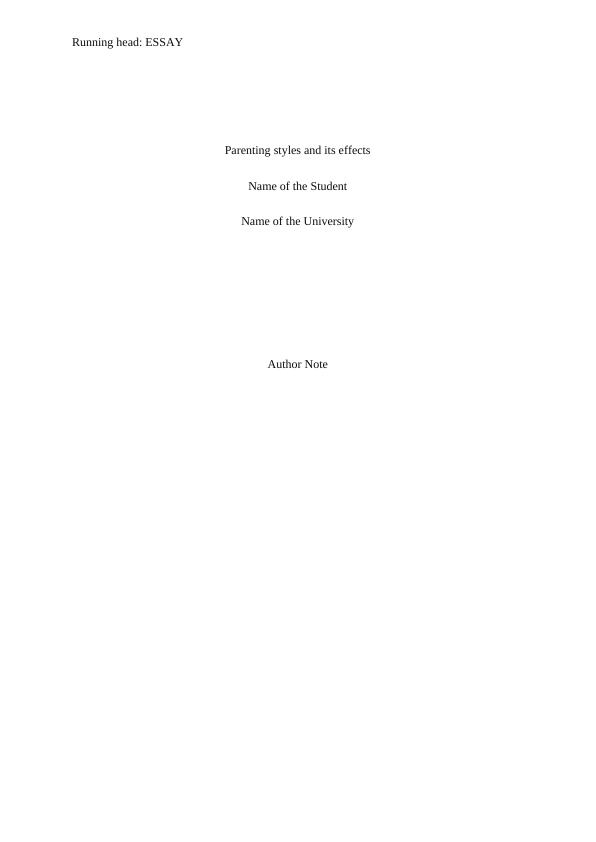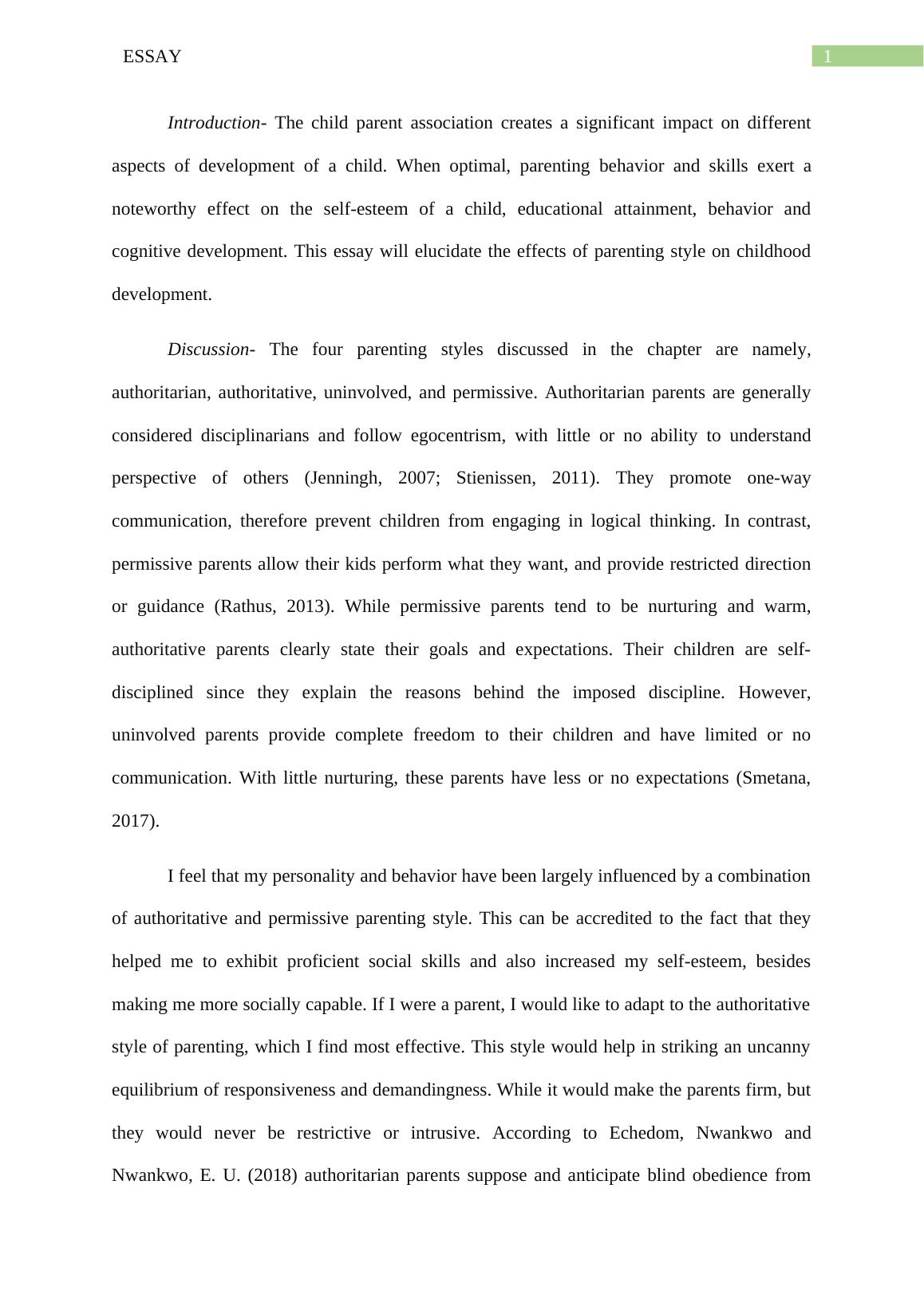Parenting styles: An evidence-based, cross-cultural
Identify the four parenting styles discussed in the chapter and describe their characteristics. Reflect on your own parents/caregivers' parenting style and its effects on your personality and behavior. Discuss your own parenting style preferences and the most effective parenting style.
4 Pages891 Words11 Views
Added on 2022-08-20
Parenting styles: An evidence-based, cross-cultural
Identify the four parenting styles discussed in the chapter and describe their characteristics. Reflect on your own parents/caregivers' parenting style and its effects on your personality and behavior. Discuss your own parenting style preferences and the most effective parenting style.
Added on 2022-08-20
ShareRelated Documents
End of preview
Want to access all the pages? Upload your documents or become a member.
Parental Style and Socioemotional Development in Middle Childhood
|4
|676
|327
Compare and Contrast of Three Parenting Styles
|5
|930
|43
Parenting Styles in Singapore and Their Impact on Children
|35
|6187
|46
Current Parenting Practices and Its Consequences
|6
|999
|24
Assignment Human Development
|6
|1142
|89
Parenting Style Case Study 2022
|7
|1532
|22


